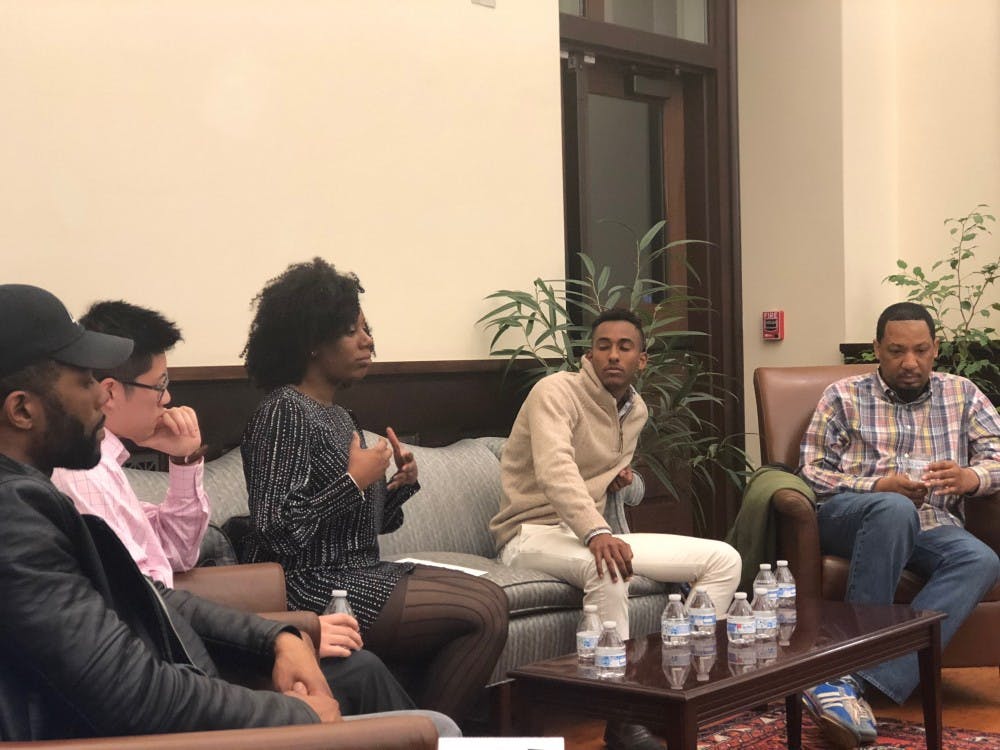UNC’s Student Hip-Hop Organization, SHHO, held a panel discussion at the Campus Y on Monday to address the art, platform and history of hip-hop and its impacts on social change and social justice.
“Hip-hop is a very large platform for artists, young and old, to share their voices and empower people who may be underrepresented in their communities,” said Nicho Stevens, SHHO executive member.
Panelists Dasan Ahanu, Jemal Abdulhadi, Kyesha Jennings, Stanley Sun and Kevin “Kaze” Thomas discussed past and present hip-hop culture – from Tupac and Biggie Smalls, to Kendrick Lamar and J. Cole, to Lil Pump – from spoken word, to beat-boxing, to rap.
“There are so many different types of hip-hop,” SHHO member Sun said. “But what’s really an important string that connects all of them is the fact that people are able to use this platform as a voice when they would otherwise not have a voice.”
The panelists recognize hip-hop as more than a music genre — it is a culture, an avenue for social change and a catalyst for conversation that has been ever present in history for a long time. Although influential rappers Tupac Shakur and Biggie Smalls are often credited with inspiring social commentary through hip-hop, Jennings claims the genre has always been rooted in activism and cultural discussion.
“Hip-hop has been political since day one,” hip-hop scholar Jennings said. “It has been contributing and eating into the social justice movement — not just with Tupac.”
Hip-hop, rap and spoken word have created avenues for individuals to share stories of the Black experience, giving people the power and motivation to speak out and give a voice to their communities.
Student and rapper Abdulhadi said it is important for artists and fans to understand that hip-hop has been synonymous with Black culture and Black struggles. There is a difference between relating to the music and respecting the culture that it speaks for.
“Those experiences aren’t just lyrics,” Abdulhadi said. “As long as we are responsible about how we listen to hip-hop, respect the culture and respect the fact that Black culture and African-American struggles comply with it, we will continue to move forward.”




